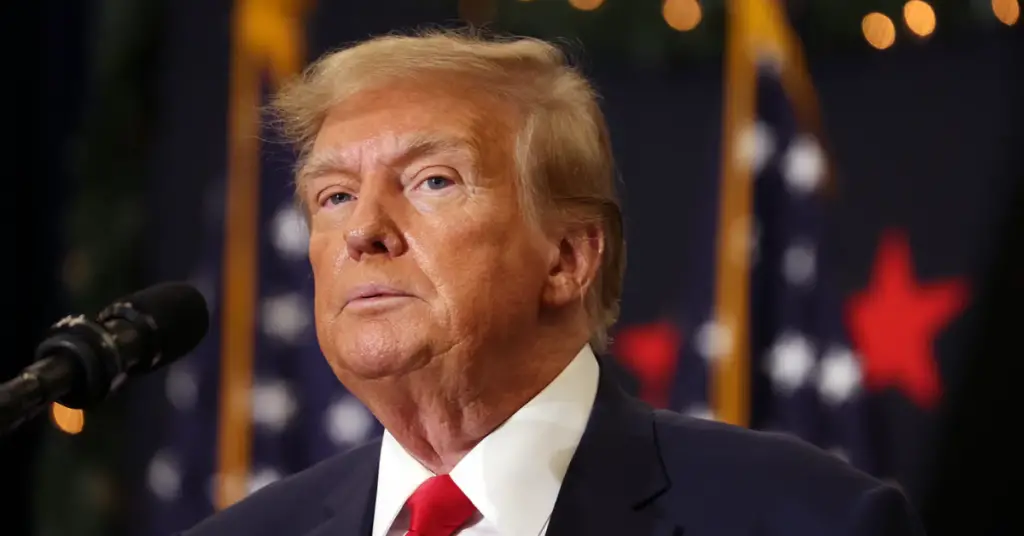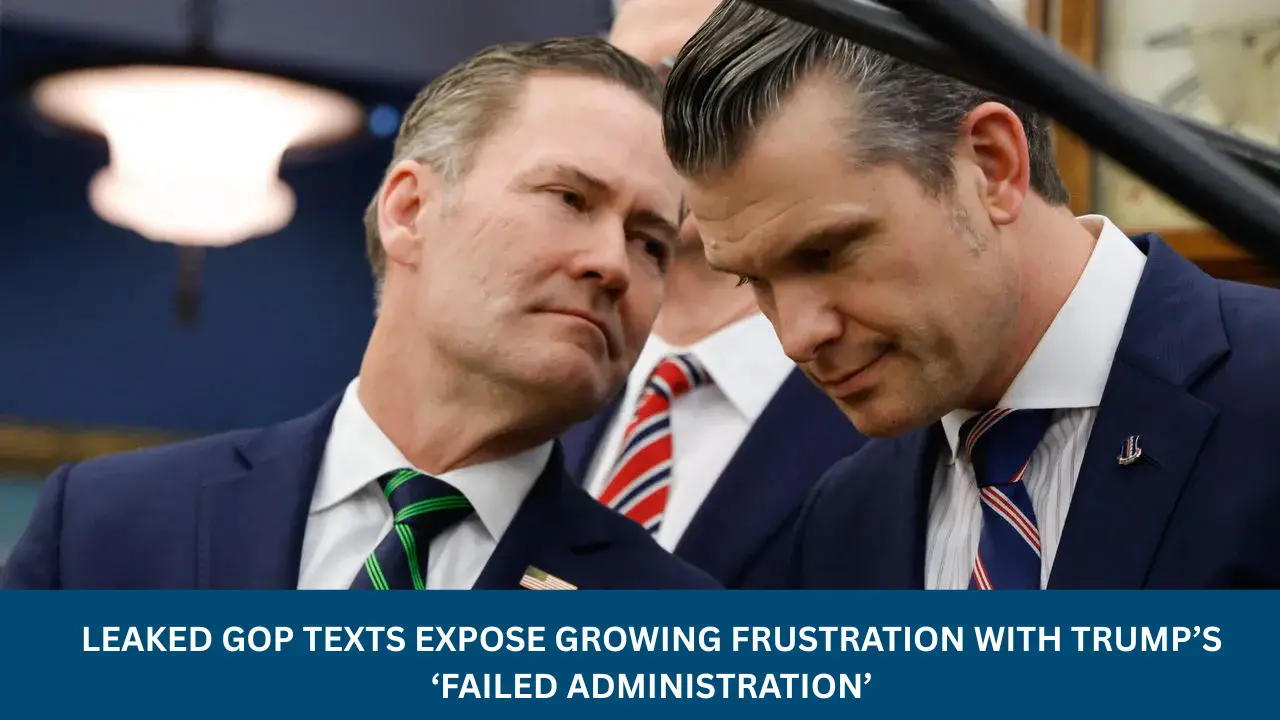Leaked messages from a private group chat of influential Republicans have thrown a spotlight on growing discontent with Donald Trump, even among some of his wealthiest and most powerful supporters. The group chat, which once served as a meeting ground for tech moguls and right-wing figures backing Trump’s presidency, now reveals a significant shift in loyalty.
These private texts, shared within the network of ultra-wealthy elites, show that Trump’s previously loyal backers are beginning to sour on his leadership, especially in light of recent political missteps.
Ben Smith, the former media columnist of the New York Times and co-founder of Semafor, brought this brewing tension to light in an in-depth report published on Sunday. He explored the inner workings of a group chat called “Chatham House,” a private Signal group that gained prominence during the chaotic early days of the COVID-19 pandemic. The chat was part of a broader network of influential private conversations that helped fuel the early alliance between the tech industry and the U.S. right.
The individuals in this chat were once staunch supporters of Trump, aligning themselves with his brand of populist politics and his promises to reshape the country’s economy. But recent events have driven a wedge between Trump and this powerful circle. Most notably, his push for unconventional tariffs has left many of his former allies questioning his judgment and his ability to lead effectively in the years to come.
This shift in perspective isn’t just isolated to one or two disgruntled individuals. According to the leaked texts, the frustration within the group reached a breaking point earlier this year. In mid-April, David O. Sacks, the chair of the President’s Council of Advisors on Science and Technology, left the group, voicing his dissatisfaction with the current state of affairs.
In a message that seemed to echo a broader sentiment shared by other members, Sacks said, “This group has become worthless since the loudest voices have [Trump Derangement Syndrome].” His remark was not just an expression of personal frustration; it signified a growing divide among those who once stood by Trump.
Following Sacks’s departure, another group member, identified as Bryan Goldberg, responded, expressing his own concerns. Goldberg suggested that what they were witnessing was not simply the manifestation of “Trump Derangement Syndrome”—a phrase commonly used by Trump supporters to describe those who oppose him—but rather the realisation that “this is a failed administration.
” In other words, Goldberg acknowledged that the policies and decisions made under Trump’s leadership were not yielding the desired results, leading to widespread disillusionment, even among his most vocal supporters.
The tensions continued to escalate when several high-profile figures also left the group in the wake of these messages. Among the individuals who followed Sacks’s exit were Shaun Maguire, a partner at Sequoia Capital, Tyler Winklevoss, a billionaire involved in the bitcoin industry, and Tucker Carlson, the former Fox News personality.
The departure of these influential figures, each of whom had been a vocal supporter of Trump in the past, underscored the magnitude of the fracture within the Republican elite. What once appeared to be an unshakable alliance between Trump and the powerful tech industry was now unravelling at a rapid pace.
This fracture comes at a crucial time, with the 2024 election cycle just around the corner. Trump has long been seen as the leader of the Republican Party, his influence extending from the Oval Office to the grassroots level. But as these texts reveal, the loyalty that once defined his political base is now in question. Many Republicans who had supported him in 2020 are now reconsidering their allegiance, and some are actively seeking alternatives within the party.

In fact, the Chatham House group chat is just one example of a larger trend within the Republican Party. As the nation moves further into 2025, it appears that Trump’s appeal is beginning to wane, particularly among those who were initially drawn to his populist message but are now disillusioned with the lack of progress and the chaos that has marked his presidency. The shift is not just happening in private chats, but also in public political discourse, with key Republican figures speaking out against Trump’s leadership and calling for a new direction.
It’s important to recognise the significance of these departures within the Chatham House group. The individuals involved are not fringe players; they represent some of the most powerful and well-connected figures in the business and political worlds.
Their defection from Trump’s circle suggests that the former president may be losing his grip on a critical portion of the Republican establishment. If this trend continues, it could signal a larger shift in the party’s direction, as both external pressures and internal doubts challenge Trump’s influence.
The growing rift within the Republican Party is further evidenced by the fact that these conversations are taking place in private, away from the public eye. The use of encrypted messaging apps, such as Signal, has become a popular tool for those within the political and business elite who want to discuss sensitive matters without the risk of being overheard.
The fact that such conversations are now centred around Trump’s leadership challenges suggests that even the most loyal of his supporters are questioning his viability as a candidate in the 2024 election.
In the coming months, it will be fascinating to see how this divide plays out. Trump’s ability to maintain his influence within the Republican Party will be tested by the increasing number of disillusioned voices within his ranks. The growing chorus of dissent could pave the way for a more competitive Republican primary race, with challengers seizing the opportunity to challenge Trump’s dominance.
For now, though, the fallout from these leaked texts serves as a reminder of how quickly political allegiances can shift. Even the most powerful Republicans, once firmly in Trump’s corner, are now reevaluating their support. The question remains: Can Trump rally his base once again, or has his time at the top come to an end?
The leaked texts from Chatham House represent a turning point for Trump and the Republican Party, one that could have lasting implications for the future of American politics.
Disclaimer: This article has been meticulously fact-checked by our team to ensure accuracy and uphold transparency. We strive to deliver trustworthy and dependable content to our readers.




